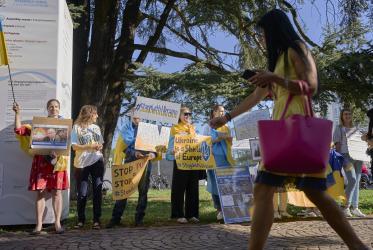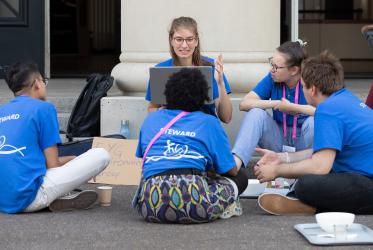Displaying 81 - 100 of 903
La respuesta a las necesidades humanitarias en Ucrania
27 September 2022
Tour the Bossey Ecumenical Institute online—with 360-degree views
15 September 2022
Christ’s Love (Re)moves Borders – GETI 2022 in images
13 September 2022
Reflections from GETI underscore friendship coupled with knowledge
13 September 2022
Aspiring therapist opens his mind to different beliefs
13 September 2022
Dear future steward
08 September 2022
Ukraine: Responding to humanitarian need
08 September 2022
WCC releases minute on consequences of the 2020 Nagorno-Karabakh war
08 September 2022
Youth organize for climate justice
01 September 2022












